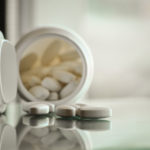New HIV, STD Threat With N-9?
Is it true that a lubricant used in condoms actually increases the risk of sexually transmitted diseases including HIV?
Andrew Weil, M.D. | February 11, 2003

You’re no doubt referring to new findings that the spermicide nonoxynol 9 (N-9) no longer appears to be as protective against sexually transmitted diseases (STDs) including AIDS, as it once was believed to be. Here’s the story: N-9 has been used as a contraceptive for more than 50 years. In the mid 1980s research indicated that it might offer some protection against HIV, the human immunodeficiency virus. As a result, manufacturers began adding it to condoms and lubricants. Since then, however, findings have suggested that N-9 may irritate genital and anal tissues, which would increase the possibility of transmitting HIV as well as other types of sexually transmitted diseases. The greatest danger is when condoms containing N-9 are used for anal sex. A number of studies have shown that the irritation caused by the spermicide increases risk of HIV transmission. Even small amounts of N-9 on condoms can do this.
In this country the FDA has proposed new warnings on labels of over-the-counter vaginal contraceptives containing N-9. The warning would state that vaginal contraceptives containing N-9 don??t protect against infection with HIV or other STDs and that use of vaginal contraceptives containing N-9 can increase vaginal irritation, which may increase the possibility of contracting HIV or other STDs from infected partners.
Remember that nonoxynol 9 was designed as a contraceptive. If that’s all you need it for, you should be okay, (although condom use isn’t the most effective contraceptive method available today). Make an effort to avoid HIV and other STDs by practicing safe sex and using condoms that don’t contain N-9. Until recently 42 percent of condoms sold in the United States contained N-9, but a number of companies have agreed to take the spermicide out of their products. Check labels carefully to see if it’s there or not.
Andrew Weil, M.D.










